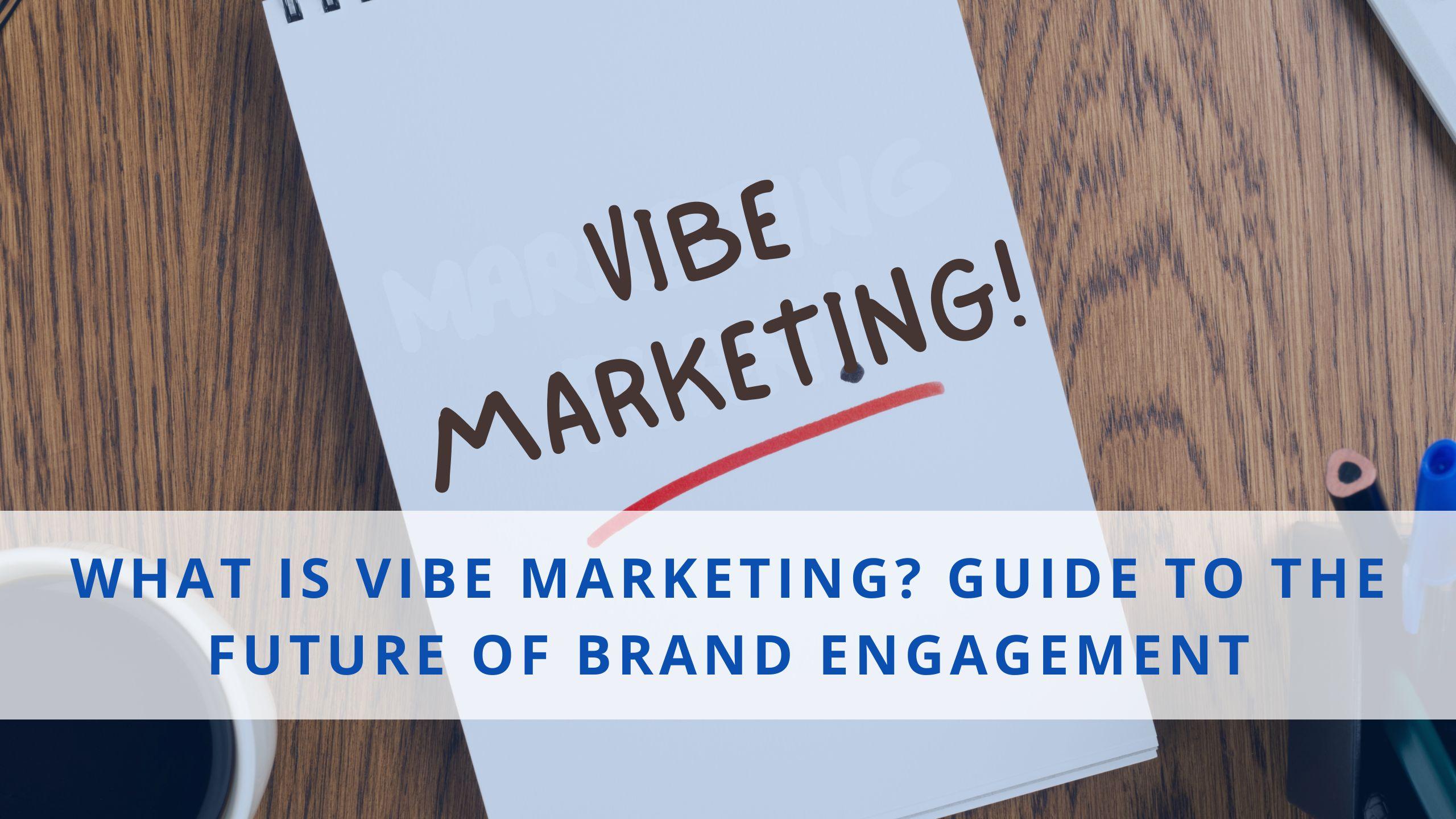Transforming Brands with Vibe Marketing: Engagement Beyond Ads

In 2025, traditional advertising is no longer enough to capture consumer attention. Brands must focus on emotional connection, authenticity, and shared experiences. Vibe Marketing is emerging as a strategy that transforms brand engagement by prioritizing moods, cultural relevance, and emotional resonance over direct promotion. This approach allows brands to foster deeper relationships and meaningful interactions with their audience, moving beyond the limitations of standard advertisements.
Understanding Vibe Marketing
Vibe Marketing is a branding strategy that emphasizes the overall mood, energy, and cultural alignment of a brand. Rather than focusing solely on product features, it aims to create an emotional atmosphere that resonates with the target audience. For example, a lifestyle brand may promote a “freedom and adventure vibe” that reflects the aspirations of its consumers, making them feel connected to the brand beyond a simple transaction.
Why Engagement Beyond Ads Matters
Modern consumers seek authenticity and emotional connection. They prefer brands that reflect their values, identities, and lifestyles. Vibe Marketing works because it builds these emotional bridges, allowing consumers to interact with the brand in meaningful ways. Emotional engagement drives loyalty, advocacy, and long-term relationships, making it more effective than traditional ads in today’s digital-first world.
Core Components of Vibe Marketing
A successful Vibe Marketing strategy relies on several key elements:
-
Storytelling: Narratives that evoke emotions and cultural relevance.
-
Visual Identity: Consistent colors, typography, and design elements that convey mood.
-
Tone and Voice: Messaging that reflects brand personality and energy.
-
Audio Branding: Music, sound effects, or voice that enhance emotional impact.
-
Community Engagement: Encouraging user-generated content, feedback, and active participation.
Social Media as a Vibe Amplifier
Social media platforms like TikTok, Instagram, and X (formerly Twitter) are critical for executing Vibe Marketing. Short-form content, hashtags, and interactive campaigns allow brands to communicate moods quickly and effectively. Authentic vibes encourage sharing and organic amplification, creating a ripple effect of engagement. Social platforms also provide real-time insights into audience reactions, helping marketers refine campaigns to maintain resonance.
Examples of Brands Transforming Engagement
Several brands demonstrate how Vibe Marketing goes beyond traditional ads:
-
Red Bull: Focuses on thrill, energy, and adventure, building a loyal and engaged community.
-
Glossier: Creates a minimalist, self-expression vibe that encourages consumer participation.
-
Airbnb: Promotes exploration and belonging, connecting with consumers on a personal and emotional level.
These examples show that emotional resonance and cultural alignment drive engagement far more effectively than conventional advertising alone.
Using Data and Analytics
Even though Vibe Marketing is rooted in emotion, data plays a key role in success. Analytics, AI-driven sentiment analysis, and engagement tracking help brands understand what resonates with audiences. Combining creative storytelling with data insights allows marketers to optimize campaigns for authenticity and emotional impact, ensuring maximum engagement.
Experiential Marketing for Deeper Connections
Immersive experiences are central to Vibe Marketing. Events, pop-up stores, and interactive digital activations let consumers experience the brand vibe firsthand. Virtual reality (VR) and augmented reality (AR) further enhance these interactions, providing multi-sensory experiences that strengthen emotional bonds and create memorable impressions.
Challenges in Executing Vibe Marketing
Despite its benefits, Vibe Marketing comes with challenges:
-
Authenticity: Forced or insincere vibes can harm credibility.
-
Consistency Across Platforms: Maintaining a coherent vibe requires careful coordination.
-
Cultural Sensitivity: Brands must stay aligned with audience values to avoid missteps.
-
Resource Intensity: High-quality visual, audio, and experiential campaigns require investment.
Future Trends in Vibe Marketing
The evolution of Vibe Marketing is expected to include:
-
Personalized Experiences: AI-driven customization to individual consumer moods.
-
Ethical and Sustainable Alignment: Integrating social responsibility into brand vibes.
-
Immersive Technology Expansion: AR, VR, and interactive campaigns becoming mainstream.
-
Community-Led Branding: Consumers influencing the brand’s cultural identity.
-
Omnichannel Cohesion: Ensuring the brand vibe is consistent across all touchpoints.
Steps to Transform Brands with Vibe Marketing
Brands can begin implementing Vibe Marketing by:
-
Identifying the core emotional and cultural values to communicate.
-
Creating visual, audio, and textual assets that consistently reflect the brand vibe.
-
Engaging audiences through social media, events, and collaborations.
-
Monitoring sentiment and engagement metrics to refine campaigns.
-
Partnering with influencers and creators who naturally embody the brand’s vibe for authenticity.
About Us:
BusinessInfoPro is your essential gateway to cutting-edge business insights and strategic innovation, delivering expertly curated analysis on digital transformation, AI-powered planning, ERP optimization, sustainability, and marketing trends. We bridge the gap between emerging technologies and practical business applications whether it’s exploring AI’s impact on enterprise planning, optimizing supply-chain processes, or decoding the future of digital platforms and advertising. Our content empowers leaders to make informed decisions, stay ahead in competitive landscapes, and confidently navigate disruptions. Backed by forward-thinking perspectives and rigorous analysis, Businessinfopro is committed to equipping professionals with the tools and knowledge they need to transform challenges into opportunities and drive growth in a rapidly evolving business ecosystem.
- Art
- Causes
- Crafts
- Dance
- Drinks
- Film
- Fitness
- Food
- Oyunlar
- Gardening
- Health
- Home
- Literature
- Music
- Networking
- Other
- Party
- Religion
- Shopping
- Sports
- Theater
- Wellness




